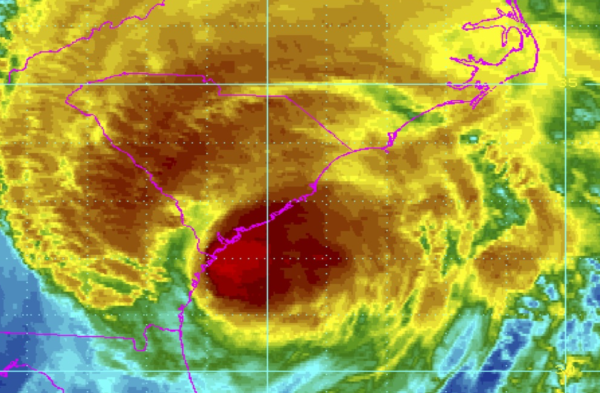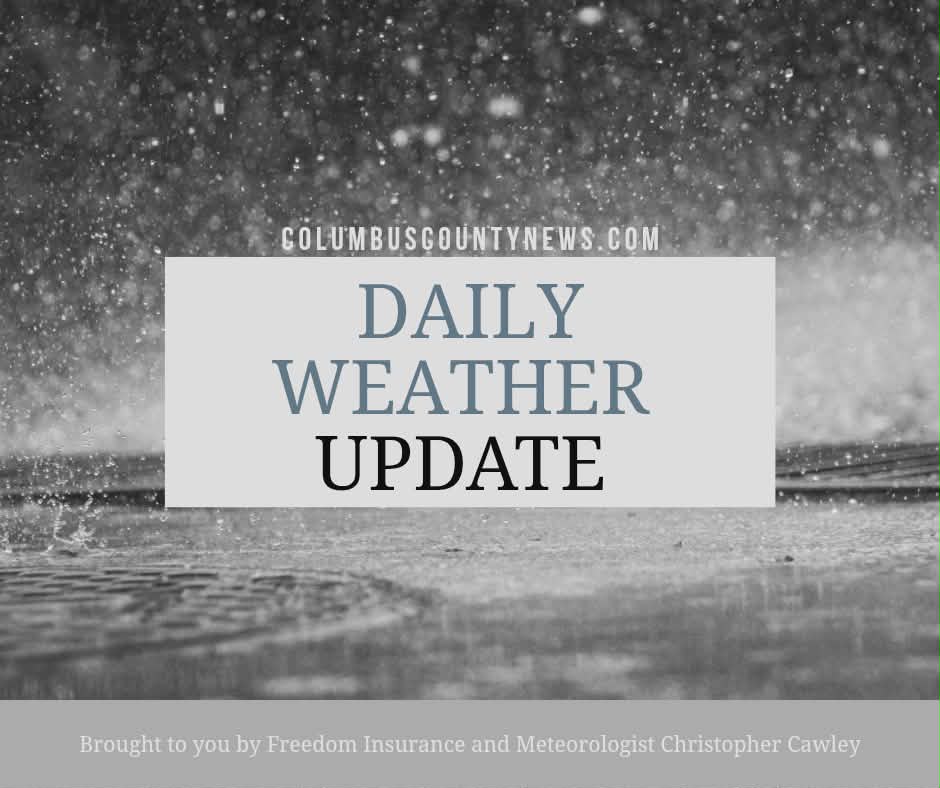Spaghetti models, homemade graphics and clickbait are not good sources of emergency tropical storm information, a National Weather Service meteorologist said.
“The misinformation was absolutely rampant with Hurricane Beryl,” said Steve Pfaff, NWS Meteorologist in Charge of the Wilmington office. Pfaff presented a program on hurricane preparedness to the Whiteville City Council Tuesday. The Wilmington office is making a push to ensure weather watchers look to the NWS and other reputable sources for information about tropical systems.
“We are looking at a more active tropical season this year, Pfaff said Friday. “It’s vital that people know they can trust their source of news during a tropical event.”
Pfaff said it’s not clear why so many self-proclaimed hurricane experts have cropped up in recent years, but the misinformation they sometimes provide can have deadly consequences.
“Some of it is done using AI (artificial intelligence),” he said. “It’s designed to be exciting and scary, and get people to share posts to increase the number of clicks. When they get one right, or adjust their predictions to match what actually happens, you’ll see an ‘I told you ‘ type of post that gives them more viewers for the next storm.
“If you are considering evacuating or staying home, you need accurate information to make the best decision possible.”
Pfaff said the NWS has been working harder than usual this year preparing for the anticipated busy season. High ocean temperatures, a La Nina weather pattern, and other factors have led forecasters to increase their forecast models.
“There is no way you can say a week or a month out that a storm is going to hit a particular spot,” Pfaff said. “It cannot be done. So beware of anyone who tells you a Category Five storm is coming ashore at Myrtle Beach next week. There are simply too many factors involved.
“When a storm starts growing, you’ll even see photoshopped images of damage, flooding, etc. Others will twist the message so it suits their purposes.
“Know your sources before you share a social media post about a storm.”
In addition to focusing on forecasts, Pfaff said NWS officials have been working with emergency managers across the region to prepare for a storm. Pfaff said several agencies recently held tabletop exercises with the NWS and other agencies to find weak points in cooperation and communications. The NWS is also briefing local governments on the need for unified, accurate information being shared with the public.
Pfaff noted that even a tropical storm can be disastrous.
“People tend to disregard a tropical storm’s power,” he said. “A stalled or slow tropical storm can bring a foot of rain in a short amount of time. That’s catastrophic flooding for some places. It’s not always the hundred mile an hour winds that get you, especially in inland areas. Flooding is much more of a concern, as we saw in (hurricanes) Matthew and Florence.”
Becoming familiar with websites and social media pages of the NWS and local emergency management agencies can make a difference if and when a storm takes aim at the Carolinas, Pfaff said.
“Do your due diligence, and know you’re dealing with someone you can trust when it comes to severe weather,” Pfaff said. “You need to have accurate, reliable information during an emergency, so you can make the best decisions for your family. There are plenty of good sources out there, and sadly there are plenty of bad ones, too.”
Numbers, impacts and forecasts can lull people into a false sense of security, Pfaff said.
“All it takes is one hurricane to define a season for all of history,” he said.
For local forecast and tropical weather information, go to https://weather.gov/ilm. You can also follow the NWS Wilmington (N.C.) office on Facebook, Twitter/X and Instagram.
Pfaff’s full presentation to the Whiteville city council can be found as a .PDF here:
https://legistarweb-production.s3.amazonaws.com/uploads/attachment/pdf/2745483/2024_DSDHH.pdf





